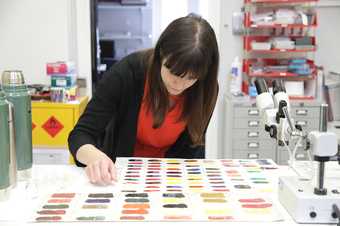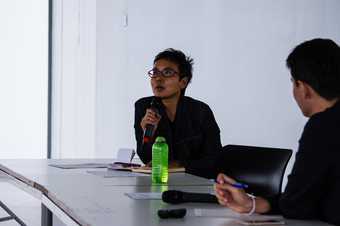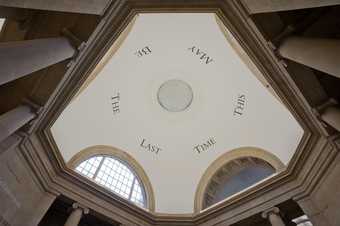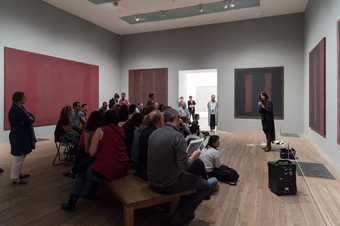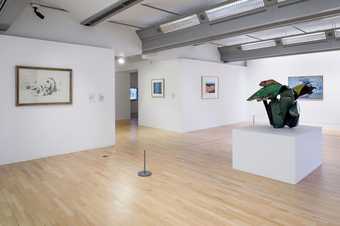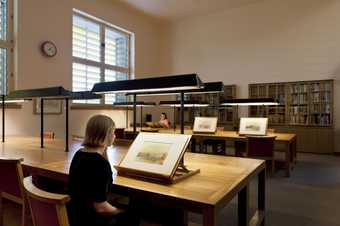Research underpins much of what we do at Tate, from staging exhibitions to acquiring artworks for the collection and finding out how best to care for them, as well as supporting our visitors to engage and learn. It involves a range of subject disciplines, including art history, history, conservation and conservation science, collection management, education and museology, as well as a variety of research methods and outputs. Undertaken across the organisation, research helps us address practical problems and allows us to contribute to broader debates.
Download Tate’s Code of Good Practice in Research [PDF, 241Kb]
Art historical research
Tate’s acquisition, display and exhibition programmes require in-depth, rigorous and at times creative research. Our aim is to deepen existing knowledge and generate fresh insights in established fields, while also creating knowledge about artists and artworks new to the collection. Beyond this ongoing work, we have a number of major projects that aim to make significant contributions to scholarly understanding in their areas. Frequently undertaken in collaboration with academic partners, they may involve workshops and conferences, and lead to peer-reviewed online publications.
Collection care research
Collection care research addresses the need for new knowledge to explore challenges related to the conservation, management and care of Tate’s expanding collection. Responding to the changing nature of art as well as the needs of the collection, our work encompasses scientific and humanities-based research. It aims to develop innovative approaches and new tools that emerge out of, and impact, practice. It also seeks to further knowledge about works of art in Tate’s collection, their materials and their making. Our research often involves collaboration with artists, as well as partnerships with both national and international organisations, a range of academic disciplines and different areas of professional practice.
Learning research
Research and evaluation are central to our teaching and learning activity, as we aim to show how gallery education practice can be understood and experienced as research-led activity. As well as framing our practice as a form of research, we undertake projects into learning methods techniques and practices. Drawing on a range of disciplines, learning research frequently involves collaboration with artists, researchers and academic partners. Aiming to develop and share new knowledge to improve practice and build theory, we share our research through workshops, conferences and publications.
Research department
The Research department acts as a hub, collaborating with colleagues to develop new research initiatives in different fields and liaising with academic partners. It is responsible for various major research projects and for online scholarly publishing, including Tate Papers, summaries and In Focus projects on individual artworks in Tate’s collection. The department hosts Tate’s Research Fellows and doctoral students.
To contact the Research department, please email research@tate.org.uk. For news of research at Tate on Twitter, follow @TateResearch.
Research facilities
A leading research institution, Tate makes freely available to the public its many research resources and facilities.

